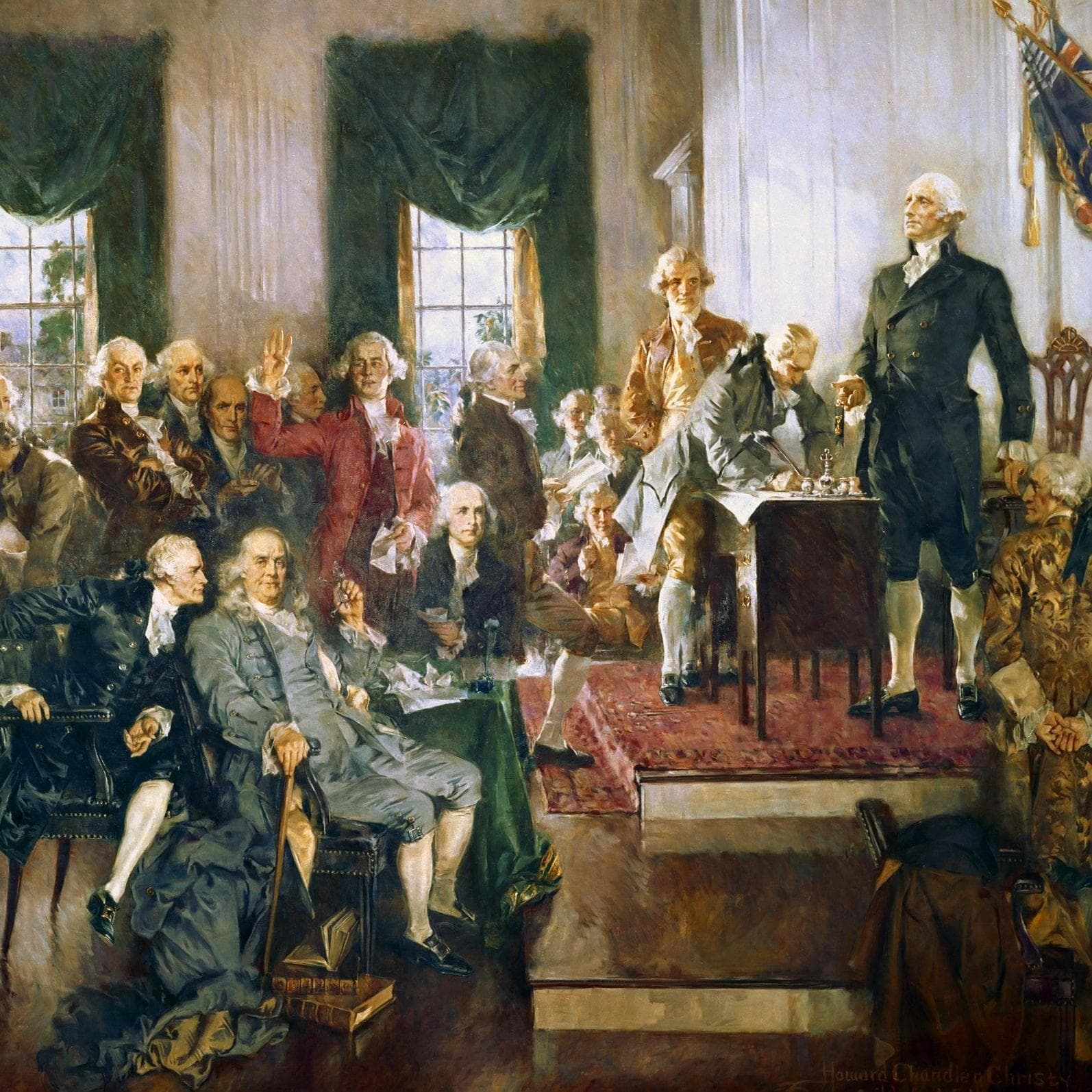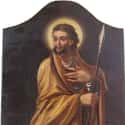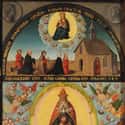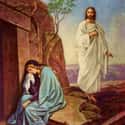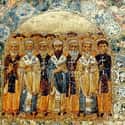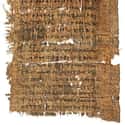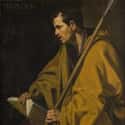-
(#1) Thomas's Name Hints That He Is The Twin
The opening sentence of the Gospel of Thomas reiterates the relationship between Jesus and the supposed author: "These are the secret words which the living Jesus spoke, and the twin, Didymos Judas Thomas wrote them down."
Described as "the twin," the writer of Jesus' words has the first name Didymos, which translated from Greek means "twin." Moreover, the author's last name, Thomas, also means "twin" when translated from Aramaic.
Some scholars believe that "twin" refers to Thomas as Jesus' literal relative, while others think that some people saw Thomas as Jesus' closest apostle.
-
(#2) The Gospel Claims The Reader Who Understands Will Be Immortal
The first logion in the Gospel of Thomas could stand as a promise of immortality: "Whoever finds the interpretation of these sayings will not experience death." While most regard this claim as an abstract promise of redemption in the afterlife, some modern scholars, like Lance S. Owens, believe that audiences during the time of the gospels might have had a contextual understanding disparate from that of many modern readers.
Owens argues that the people of the gospel's time saw the teachings of Jesus as a personal revelation describing the relationship between humanity and the divine. The person develops a spiritual connection with God, becoming a conduit for the divine. Next, they may experience a form of transcendent vision to reveal the real message of the Gospel of Thomas.
Thus, any modern interpretation would fail to find the gospel's true meaning without this ancient understanding, which Owens calls the "visionary hermeneutics."
-
(#3) The Gospel Might Reinforce The Substitution Hypothesis
If Thomas were Jesus' literal twin brother, this relation could call into question the veracity of Jesus' resurrection. Long before the Gospel of Thomas's discovery, some hypothesized that Jesus was never resurrected; rather, a twin or lookalike made the ultimate sacrifice in his place or impersonated him after his passing.
The interpretation of Thomas as a literal twin brother reinforces the possibility of the substitution hypothesis proposed in Islamic theology. Residents of the small mountain village of Shingo, Japan, also believe Jesus may have faked his passing; however, they theorize that Jesus escaped to Japan - where he had supposedly studied theology as a young adult - to live out his natural life, then was eventually laid to rest on the island country.
-
(#4) The Early Church Fathers Hated The Gospel Of Thomas
Though it never openly states Gnostic beliefs, the Gospel of Thomas features some Gnostic implications, most notably about withholding secret wisdom or knowledge. As the BBC puts it, according to the Gnostics, "Jesus was a disembodied spirit come to deliver selected souls from matter by revealing secret 'knowledge'" - and it is this mystical association with Gnosticism that compelled the public to view it as heretical.
The early church fathers empathically contested Gnosticism from the 2nd century through the 9th century, but the Gospel of Thomas proved especially infuriating to them.
Early church theologian Cyril of Jerusalem said of the book, "Let none read the gospel according to Thomas, for it is the work not of one of the Twelve Apostles, but one of Mani's three wicked disciples." He references the Persian mystic called Mani of Ctesiphon, founder of the Gnostic religion, Manichaeism.
Furthermore, Bishop Eusebius said the Gospel of Thomas was part of a group of texts "so completely out of accord with true orthodoxy that they clearly show themselves to be the fictions of heretics."
-
(#5) Some Of The Gospel Of John May Have Been Written In Response To The Gospel Of Thomas
Due to the chaotic power struggle during early Christianity's formation, it remains a challenge to determine when certain gospels were written. Many of these stories could have existed in oral forms years before someone wrote them down. At the time of the gospels' composition, there was no canon, merely a group of people telling stories about Jesus. They traveled to different lands, telling many versions of the same story.
Audiences spread these travelers' stories to others, embellishing, changing, and rewriting them over the decades. Rough dates exist for a few parts of the New Testament, like the letters of Paul, but for the most part, the oral tradition that birthed these stories makes accurate dating near impossible.
Some scholars, however, have pushed the idea that the Gospel of Thomas existed in some form before the Gospel of John and that John was written, in part, to refute the Gospel of Thomas. Religious historian Elaine Pagels claims that John is almost a smear piece since it paints Thomas as clueless and without faith.
-
(#6) The Gospel Of Thomas May Have Existed Before The New Testament's Gospels
Precisely dating the Gospel of Thomas proves difficult because of differences between the writings and the age of the manuscript on which they were found. Some scholars believe that Thomas's relative independence from the four canonical gospels indicates that it probably emerged before or around the same time as the other gospels, dating it to the middle of the 1st century CE.
However, the manuscripts found in Nag Hammadi were dated to the early 3rd century CE. It is likely the gospel existed before the manuscripts, passed through an oral tradition before being written down.
-
(#7) It Reads Differently Than The New Testament
Structurally, the Gospel of Thomas has no parallel in the canonical New Testament. It is a sayings gospel, which contains no acts or stories of Jesus' deeds. Instead, the gospel communicates sayings and quotes supposedly said to Thomas by Jesus.
The writer of Thomas focuses entirely on the words of Christ, purporting them to be a record of "secret teachings" from Jesus.
-
(#8) Thomas's Doubt Becomes Especially Tragic If He Were Jesus' Brother
In the New Testament, Thomas does not believe the other apostles when they announce Jesus' resurrection. Thomas continues to doubt, saying, "Except I shall see in his hands the print of the nails, and put my finger into the print of the nails, and thrust my hand into his side, I will not believe." When Jesus appears to Thomas, however, he finally believes.
This doubt gets cast in allegorical terms ("doubting Thomas" refers to any that doubt Christ), but if Thomas were indeed Jesus' twin, the nature of the story would change. His doubt would no longer be solely an uncertainty of faith, but a heartbreaking story about a man who had lost his brother.
-
(#9) It's Not The Only Apocryphal Text Attributed To Thomas
Among the discovery of the Gospel of Thomas at Nag Hammadi was an enormous treasure trove of Gnostic and proto-Gnostic texts. Thomas purportedly wrote a number of these texts. His writings had a distinct tradition, similar to Pauline and Johannine traditions, that branched off from other forms of Christianity.
People primarily practiced the Thomas tradition in modern Syria, but by the 4th century's end, the tradition was mostly abandoned, and the texts were gone.
The Thomasine texts include the Acts of Thomas, the Book of Thomas the Contender, the Hymn of the Pearl, the Apocalypse of Thomas, and the Infancy Gospel of Thomas.
New Random Displays Display All By Ranking
About This Tool
The Gospel of Thomas is a major discovery in the history of theology. It is said that this book was written by Thomas, one of the twelve disciples of Jesus. The whole book only records the words and deeds of Jesus, without mentioning his preaching process and resurrection experience. A Bible scholar who studied the Gospel of Thomas claimed that Jesus Christ had a twin brother and he was one of Jesus' disciples.
The Gospel of Thomas shows lots of evidence, including his name, childhood stories, and some other bible verses. The random tool explained 9 proofs of this incredible speculate.
Our data comes from Ranker, If you want to participate in the ranking of items displayed on this page, please click here.





